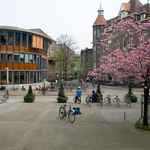Nocturnal Dialogues #3: Activism at Night
*This event, which was to take place on 8 May, has been rescheduled to 13 June
- Date
- 13 June 2024
- Time
- 19:00 -21:00
- Location
- BG 3
- Room
- VOX-POP
Programme
First, we will open up the conversation on the potential of nightlife spaces for community building, and see how this can fuel activism movements, with a short lecture by Sara Brandellero and Kamila Krakowska Rodrigues on migrant communities and the potential of nightlife. We will then open a discussion together with activists from Mokum Kraakt - an Amsterdam-based squatters collective - and participants from Here to Support - an NGO focusing on increasing access to nightlife for undocumented migrants and refugees.
We will then move on to explore how nightlife can offer a fertile space for rethinking social structures and boundaries. With an explosive performance by the House of Extinction, a climate activist drag house, we will explore how pleasure and joy can be a means of empowerment and justice movements.
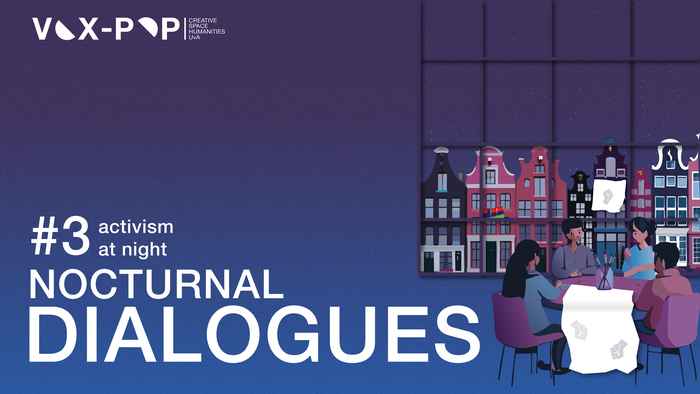
Nocturnal Dialogues
The night is often associated with club culture and electronic dance music. With “Nocturnal Dialogues”, Alina seeks to redefine the boundaries of the urban night. Beyond the beats of nightlife, we explore topics like nature, rituals, and activism at night. We broaden the discussion about who has a right to the city at night, and bring together various academic disciplines engaging with night studies as well as diverse night communities. Students and scholars from fields as diverse as philosophy, urban geography, sociology or music studies can expect to find relevant links with this intersectional programme. This program, spanning across 2024, transcends the stereotypical associations of the night with leisure and economics. Through interactive lectures, workshops or film screenings, we aim to broaden the discussion and include a diverse audience in conversations about the city at night.
Speakers
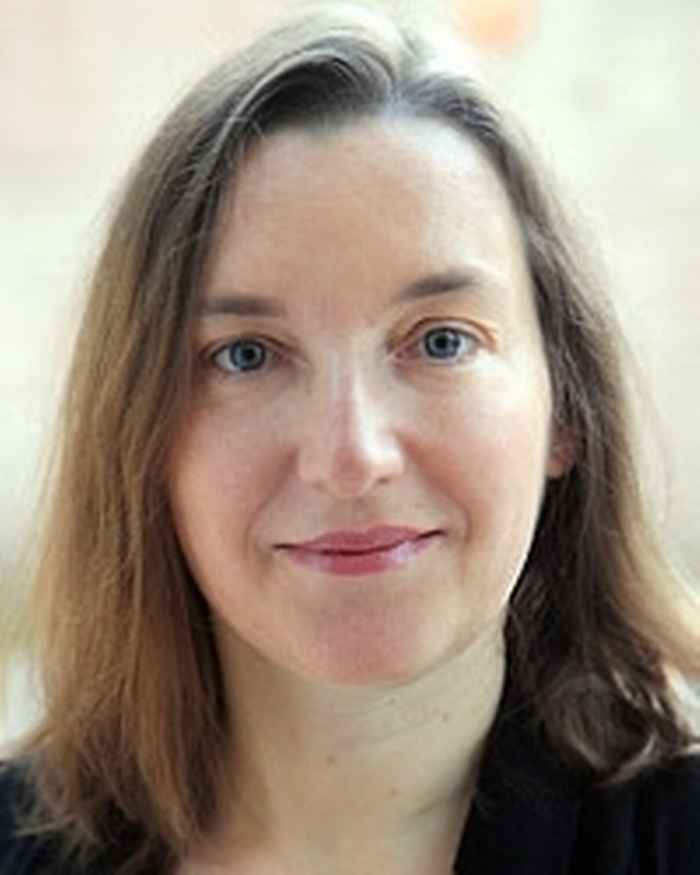
Sara Brandellero is a university lecturer at the Leiden University Centre for the Arts in Society. In her teaching and research, she explores cultures of the Portuguese-Speaking world, including in transnational, diasporic perspectives, with a particular focus on Brazil. Her work considers questions of spatial agency, mobility, and culture and power, including in non-democratic contexts. Between 2019-2022 she was Project Leader of the European project Night Spaces: migration, culture and integration in Europe (NITE).
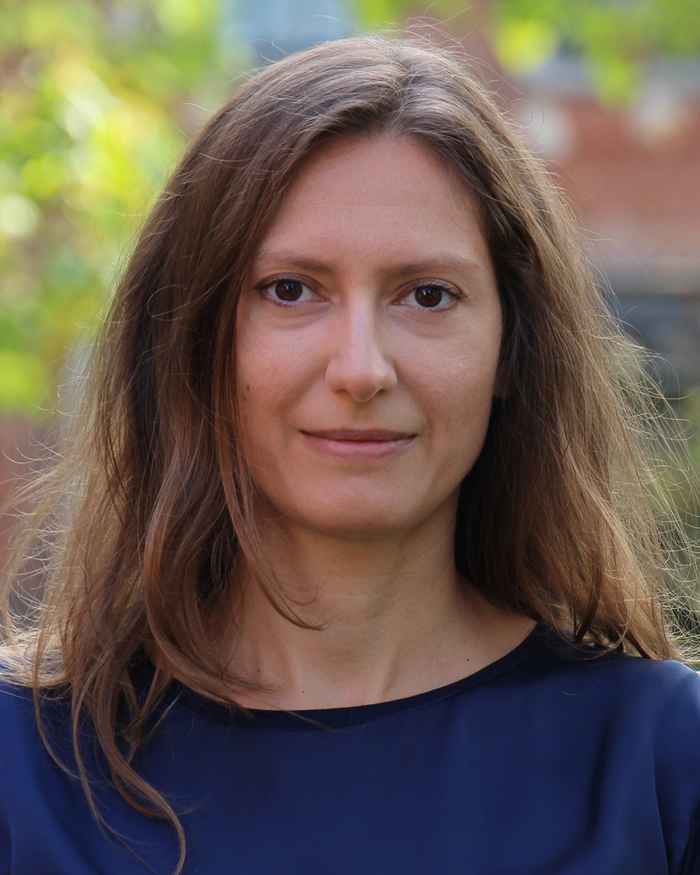
Kamila Krakowska Rodrigues is a university lecturer at the Leiden University Center for the Arts in Society (Netherlands). Her research addresses identity negotiations in arts and cultural practices in the globalized Portuguese-speaking world, with a special focus on African and Afrodescendant communities. Her PhD thesis (2014, Coimbra University, Portugal) on the motif of travel in Brazilian and Mozambican literature was awarded with the international Fernão Mendes Pinto prize and published by the Institute Camões (2019). Currently, she is leading the ERC Starting Grant “City Tales: an art-based participatory framework for studying migration-related diversity”.
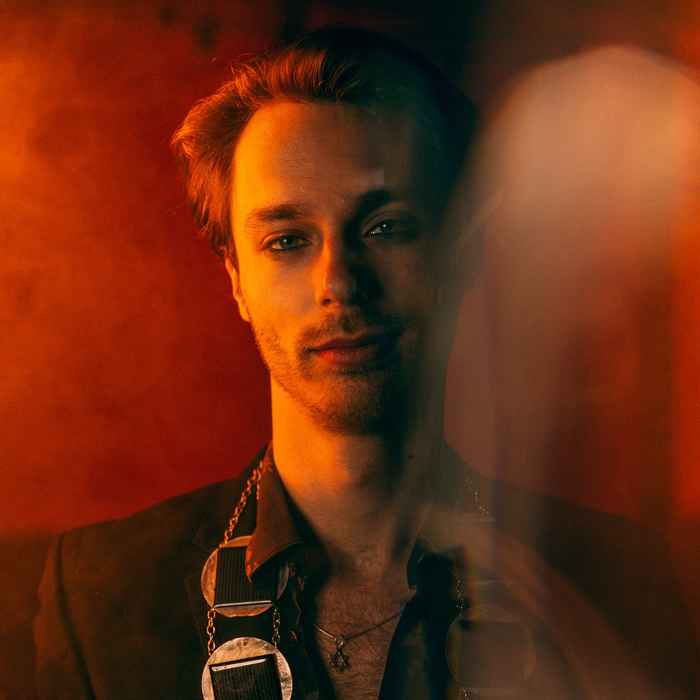
Freek Wallagh is a poet, political scientist, nightlife organiser and activist. He began his career at the age of 15 in the red light district, interviewing local musicians, sex workers, bar staff and artists. He performs as a poet and MC at festivals and club nights, and researches the power dynamics of nightlife and (underground) culture. As night mayor he has been focusing on promoting radical care and bottom-up organisation in nightlife. He is currently involved in the recent UvA demonstrations, offering support and counseling for activists and organisers.
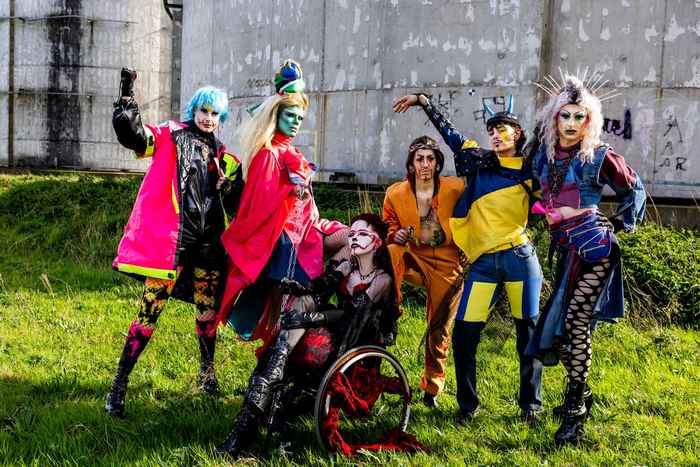
Joining us on the panel are Mannish Pixel and Kaotica of the House of Extinction, allegedly the first explicitly climate activist drag house in the Netherlands. The now-seven family members unite a sustainable, conscious practice and fabulous, otherworldly art in their drag by means of which they aspire to collectively smash the capitalist cistem.
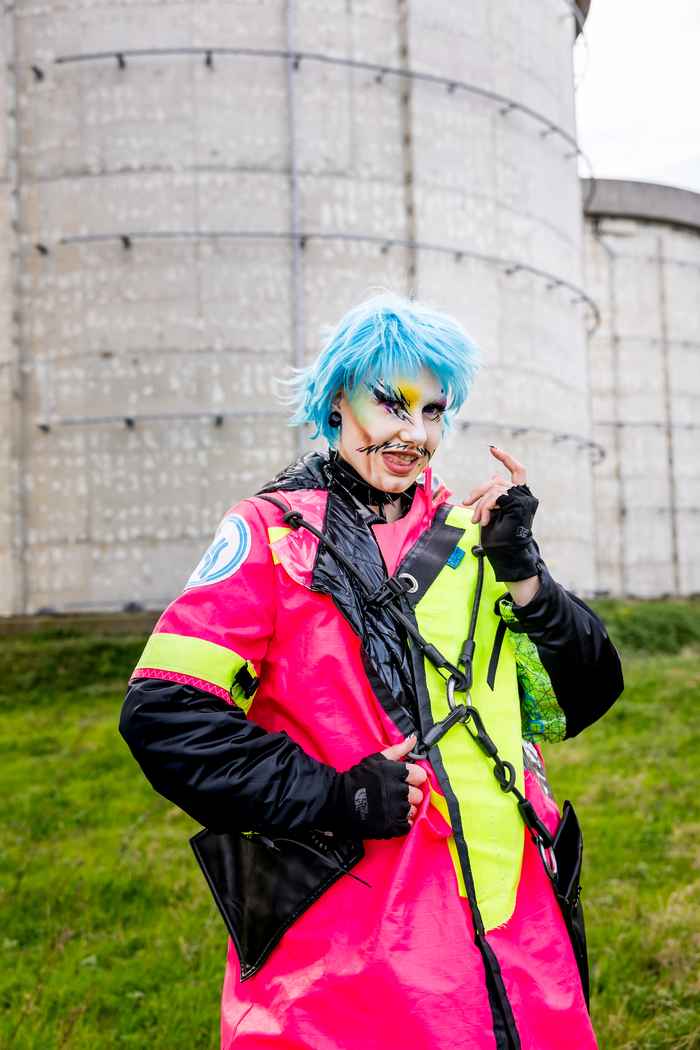
Mannish Pixel, daddy and co-founder of the House, is a glam king breaking stereotypes both within and outside of the intersecting worlds of activism and the queer scene. While he takes pride in his gendermeddling style, confusing some and exciting more, his statements and beliefs are most clearly what he fights for in realms sometimes as different as night and day.
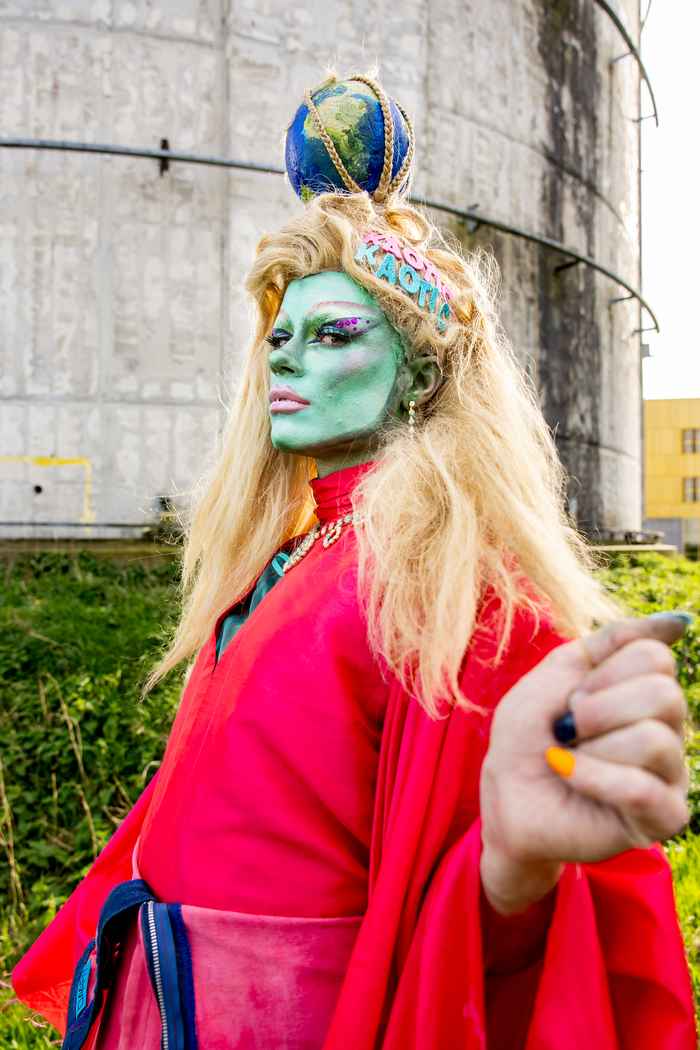
Kaotica, a fierce drag queen and proud daughter of the House embodies the essence of vibrant chaos while championing crucial causes under the burning sun or the moonlit sky. Join us as Kaotica shares her unique journey, blending artistry, activism, and the power of the night to ignite change.
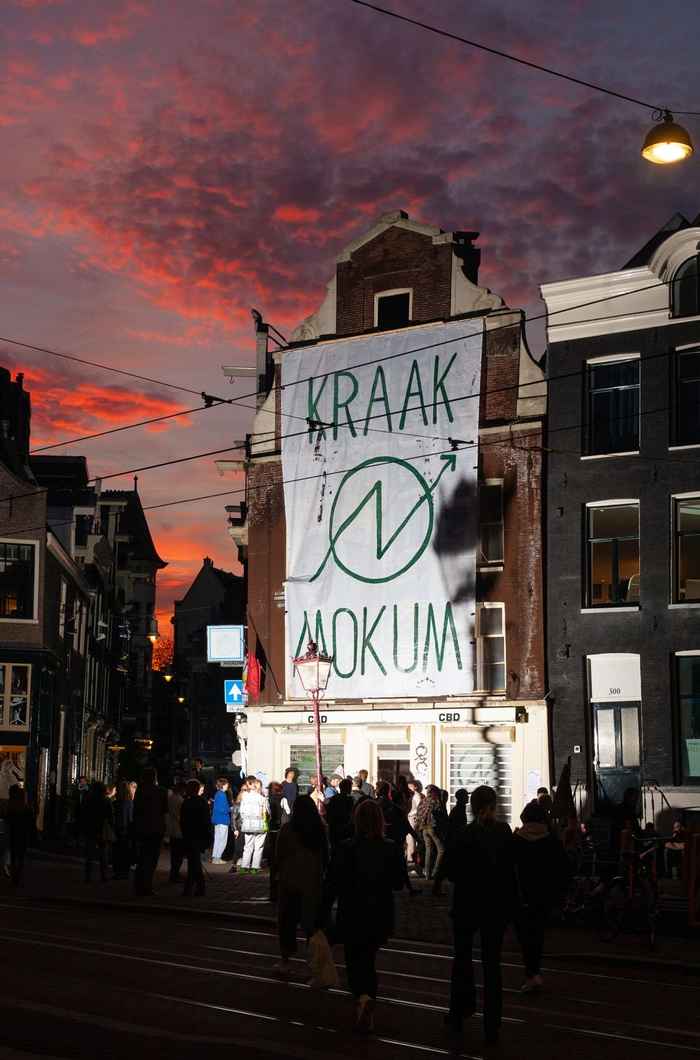
Mokum Kraakt is an Amsterdam-based collective of activists and artists who combine squatting actions with artistic projects. Besides squatting several buildings over the last couple of years, they have organised art exhibitions, made a documentary, published a book, and started a publishing house. During this session, their representatives will talk about how radical politics and art relate to each other, and about their practices of reclaiming space.
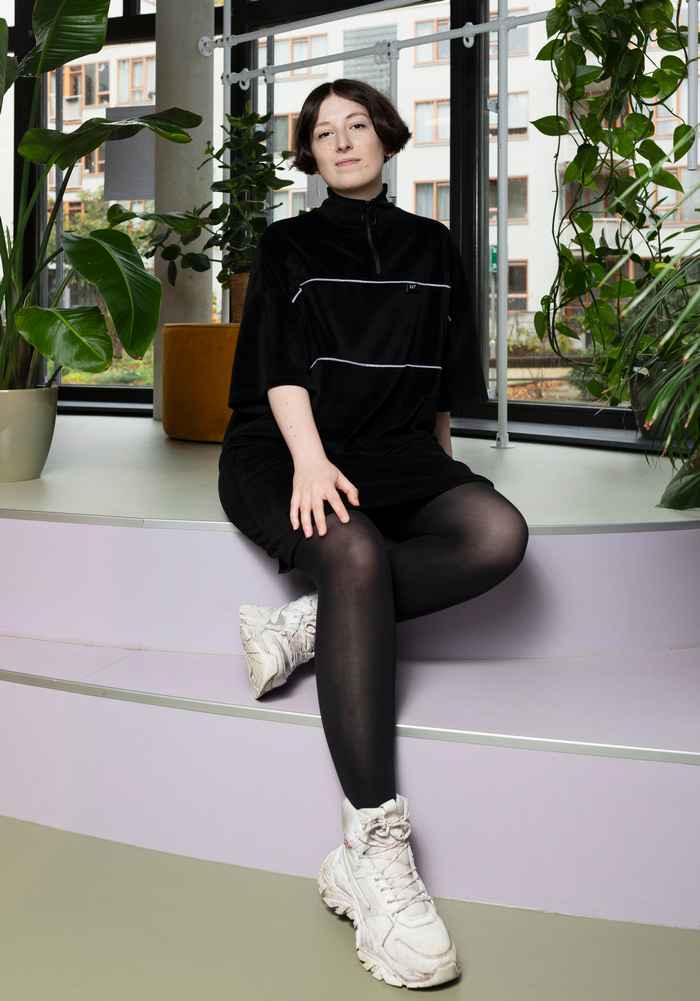
About student-in-residence Alina Tomescu
Alina has always been passionate about cities and the way that culture contributes to their development. She worked for 7 years on various projects related to heritage and cultural programming in relation to regional and local development. In 2021 she went back to university to focus on exploring academically what the city at night means, and how night studies can enhance her practice until that moment. She noticed that she and several of her friends would feel more comfortable during the night, and that the city opens itself up for different uses during the dark hours. She dived into this topic first through a pre-masters in Cultural Sociology at Erasmus Rotterdam, and then through a more humanities-focused master's programme at the UVA in Comparative Cultural Analysis.
